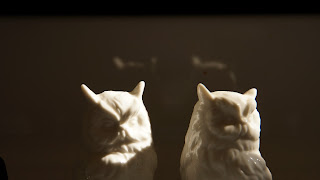I have so many things to say about Claire Dederer's memoir
Love and Trouble* that I can't possibly fit them all into one blog post. Mainly, I find I just want to highlight her words and share them. So I will focus this post on the most highlighted part of the book - her final chapter - "On Victimhood."
One of the things I struggle with the most in my memoir, currently titled Not Alone, is how to talk about sexuality. How to write about it? Really. Really really. When I first started writing about it, it seemed clear - because it is clear - that I was strongly shaped by a couple of young victimhood experiences with sexuality. Older boys - not yet men, but certainly with more agency than me - taking advantage of me sexually. These were both traumas, the two sets of experiences, and at first I thought my memoir was all about how they affected my sexuality. Then I thought, "Well, losing my dad at age 12 certainly affected my sexuality as well." That's true, also.
The fact is, the more I wrote, the less focused on victimhood I was. The more interested in nuance, in exploring all the subtle effects of growing up, socialized female, being cisgender and bisexual. Some traumas, some beautiful explorations. It's possible my young body enjoyed some of the victimizing encounters - that's not uncommon, even if they cause trauma - but that doesn't mean I "asked for it" or even that they are less traumatic (pro tip: if your body enjoys something traumatic that happens to you sexually, it makes it EVEN HARDER to unpack all the shame).
So when I came upon this final chapter in Dederer's memoir, which I was already relating to strongly for its exploration of how her sexuality came up for question again in her mid forties, I was blown away by statements like these. I feel like I am phoning in this blog post just quoting a lot from Dederer, but the fact is, in this final chapter she says so much of what I have wondered about, including feeling icky writing it.
I only wanted to tell stories of how sex had happened to me. Mary Karr has said that the reason she wrote Cherry, her memoir of teenage lust, was that teen sex was never written about, just teen victimhood. Now that I’ve had a whack at it, I can see why—it is easier to write the victimhood. The victimhood was like a vehicle that took me closer to what really interested me, what was obsessing me in middle age as it had done in youth: sex. But if I wrote only about assault and predators, I didn’t have to face myself as a sexual person.
Sex was a home and a site of purest simplicity. You just were. It pains me to write these words more than any other words in this book: I liked it. It’s still so hard to say it. The premise of this book is that I was wild and unhappy as a teen, and my unhappiness stemmed from my sex-crazed nature. But what I really felt was what I feel now: Life was hard, and I didn’t know what the hell I was doing, and I was profoundly, near-fatally afraid of failure, and sex was the only thing that made me feel better. And who doesn’t want to feel better?
The conflation of victimhood and desire is very hard to talk about, but that doesn’t mean it’s not real, at least for me. Even writing that sentence makes me afraid, as a feminist, that I am saying something wrong. But for me the freest and purest expression of sex has come with the playacting removal of volition. Being constrained in some manner, whether by hands or ties or just the physical weight of another’s body.
Of course the moments—and there are more than I’ve told here; a list—when I’ve actually been assaulted were the opposite of pure and free. This is the complication. We all understand that rape isn’t really a sexual act.
Two facts, in conflict and simultaneously true. I can be excited by the idea of victimhood and still have been victimized. Even if I’ve turned into grist for the sexual mill, nonetheless, I didn’t get to choose to be victimized that first time, that first among many. I didn’t get to choose the historical circumstances that have complicated my life. I get to own and even enjoy my excitement over being dominated or punished, but I also get to be pissed at a culture that didn’t protect me.
In this #metoo moment (or, to be more accurate, white female popularization of #metoo, which began long ago under the guidance and care of women of color with less public awareness paying attention to it), words like this feel all the more risky and also essential. Unpacking the complexity of sexuality, especially victims' sexualities, is not only respectful but also crucial. We cannot rest in the place of polarization and dualism, as tempting as it is. Not only do we wind up dismissing those who victimize others, we other the victims themselves/ourselves.
Dederer's book has upped my own game in my own memoir.
*I also want to name that this title is almost the same as a brilliant short collection of fiction from 1973 by Alice Walker,
In Love and Trouble, Stories of Black Women. Please read this as well. It's a memoir blog, otherwise I'd discuss that, too!





